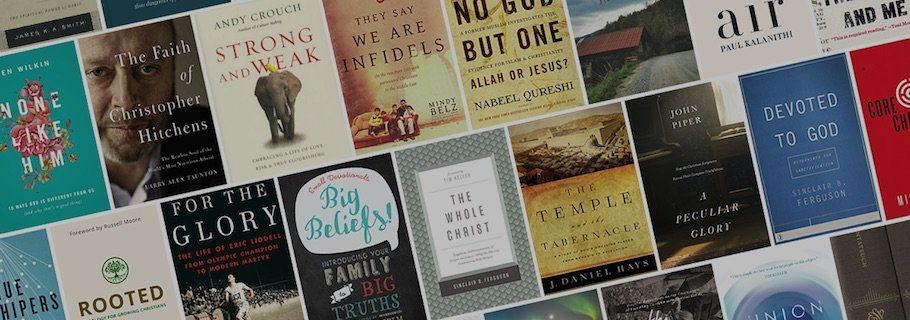Reading is a solitary pursuit. You grab your book, you kick back on the couch, and the hours roll by. But even though reading is a solitary pursuit, it is not necessarily a selfish one. Reading can actually be an important way to love others. Here are five ways to love others in your reading.
Read to Grow
You can love others by reading books meant to address flaws in your character or conduct. The husband who reads Dave Harvey’s When Sinners Say “I Do” is reading to better love his wife. The woman who reads Shepherding a Child’s Heart is equipping herself to better love her children by raising them according to the Bible. The church member who reads Alexander Strauch’s Love Or Die is learning to better love his church.
Likewise, the man reading Hannah Anderson’s Humble Roots is better equipping himself to lead his family with humility, the woman reading Robert Jones’s Uprooting Anger is addressing a sinful temperament so she can respond to her children with patience and grace.
In every case the reading is done privately or in isolation, but it is done with a view to helping others. In this way, the reading is an expression of love.
Read to Understand
Another way to make your reading an expression of love is to read books that help you better understand other people. Each of us has a narrow experience of the world and, therefore, a narrow perspective on it. Reading helps us broaden our perspective by accepting the invitation into other people’s experiences.
The husband who reads Sarah Mae’s and Sally Clarkson’s Desperate will come to a sharper understanding of some of the challenges his wife faces as a wife and a mother. If he reads Kimberly Wagner’s Fierce Women he may better understand his wife’s struggle with having a strong personality. Church members who read books on pastoring will better understand the joys and trials their pastors face. Homeschoolers who read Going Public will better understand the joys and challenges of public schooling.
At a time when there is a heightened awareness of racial tensions, white Americans can read Anthony Carter’s Black and Reformed and Benjamin Watson’s Under Our Skin. This will broaden their understanding in helpful ways. And at a time when we read constant headlines about same-sex attraction and transgenderism, Christians would do well to read Wesley Hill’s Washed and Waiting or Rosaria Butterfield’s The Secret Thoughts of an Unlikely Convert.
Books allow you to grow in your understanding of the challenges, the joys, and the experiences of other people. This, in turn, allows you to grow in your compassion and in your ability to love.
Read to Recommend
Another way you can love others through reading is to become a kind of recommendation engine. Every church needs to have at least a few people who have read enough that they can steer people toward excellent resources. To do this helpfully, you will need to read widely. You will need to read not only books that interest you and pertain directly to you, but books that have little direct bearing on your life. Even married people can read a few books on singleness so they can recommend the one or two best picks. Even single people can read a few children’s books or children’s Bibles to help resource parents as they begin to teach their children about the Lord.
There is a huge ministry in the church in recommending books. Maybe you need to become that person.
Read to Disciple
A fourth way to love others through reading is to read books with people. Reading books together can serve as a simple but powerful means of discipleship. When you read a book with other people, the author takes on the role of the teacher while everyone who reads gets to be the student. Together you can benefit from the wisdom and expertise of godly authors. I have read Jerry Bridge’s The Discipline of Grace with a group of 35 young adults—one chapter per week, out loud together, followed by discussion. It worked well. I have read Tim Keller’s Galatians For You with Aileen, a few pages per day as we were able. I’ve read Os Guinness’s The Call with two others, meeting on Tuesday mornings long before the sun was up to discuss each week’s reading.
You may begin a reading group like this for mutual benefit, or perhaps primarily for the benefit of a friend or spouse. But, either way, the reading will be initiated and completed as an expression of love for others.
Read to Protect
Finally, you can make your reading an expression of love for others when you read in order to protect the ones you love. Just as there is a ministry of reading and recommending good books, there is also a ministry of reading and warning about the bad ones.
Sadly, we are inundated with books that are deeply flawed. And, equally sad, the best-selling books are often the worst of all. People in your church are being given these books or perhaps picking them up without knowing just how dangerous they are. You can love and protect your church by reading some of the Christian bestsellers to understand their appeal, to grasp their dangers, and to lovingly warn people away from them.
In these five ways the solitary pursuit of reading does not need to be a selfish pursuit. We can and should read as an expression of love for others.










